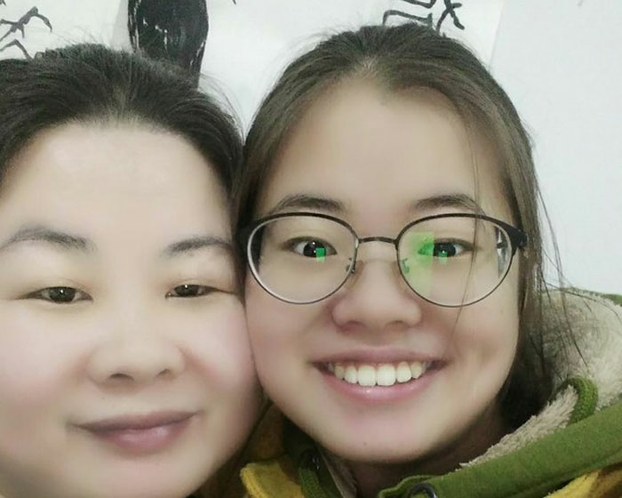




Chinese artist and feminist Ye Haiyan, known as "Hooligan Sparrow," the eponymous subject of an award-winning documentary about her activism, is hanging onto her home in Beijing's Songzhuang artists' village after authorities cut off her water, electricity and heating, she told RFA.
After posting photos of her and friends sitting in her candlelit home in outdoor clothing to Twitter, Ye told RFA that officials are trying to pressure her into voluntarily giving up her home.
"The landlord just came round and turned off the electricity," she said. "I have called the government helpline twice but they haven't got back to me."
"The landlord told me that the township government would cut off the water and electricity if I refused to move out, as well as the central heating."
Beijing's temperature was reported at -8C on Friday evening local time.
"They also told me that the heating would be cut off to other households within this building," Ye said. "We have an elderly person in their 90s living in our house, so it also has an impact on our family life."
Ye, who has repeatedly sent out updates via Twitter in recent days, calling for help, said she had previously been issued with the threat of eviction if she didn't stop posting on social media, but refused to comply.
Criticism of Mao
She believes the attempts to evict her are linked to a political essay she posted on Jan. 13 criticizing China's Maoists, whose protests have led to the sacking of a university professor, a government official and media denunciation of a prominent journalist in recent weeks.
"I told the landlord they should just have the government come round and cut off the water and electric at the meter, then at least they would only be targeting me, and not the landlord as well," she said.
"But the landlord said they couldn't differentiate, and that they insisted that the heating had to be switched off as well."
"I can understand his point, but there is no way that I am moving out of here of my own accord. They have no cause to evict me, and yet they expect me just to leave, meekly."
"They can throw me out; I won't have the strength to resist them; but they'll have to throw me out on the street," Ye said.
"It's snowing in Beijing today, so there's no way I am going out looking for a new place to live with my kid today."
William Nee, China researcher with Amnesty International, condemned the authorities' treatment of Ye and her family.
"We are following the situation closely. It is totally unreasonable for her to be ... put under such pressure to move out," Nee said.
"They should stop putting pressure on Ye Haiyan and allow her to continue living there, and they should stop using such methods as a way of targeting rights activists," he said.
Poet Wang also camping
Beijing poet and political activist Wang Zang, who was detained in 2014 for posting a performance art selfie in support of Hong Kong's pro-democracy movement, is also camping with his young family in their home after the authorities cut off the electricity and internet connection.
Wang has previously used performance art to show support for Hong Kong's 2014 democracy movement, detained Guangzhou rights lawyer Guo Feixiong, and to commemorate the execution of Mao-era dissident Lin Zhao, as well as supporting Ye's activism.
Wang has also expressed opinions through his accounts on Twitter and Sina Weibo, the Chinese equivalent, in support of jailed Uyghur scholar Ilham Tohti, self-immolating Tibetans and followers of the banned Falun Gong spiritual movement, which the authorities have designed an "evil cult."
Commentators say the Maoist left is a growing popular movement in China, amid growing social inequality and rampant official corruption.
The Communist Party typically retaliates harshly against anyone abusing Mao or his image, as this is held to represent an attack on the founding supreme leader of the People's Republic.
However, it has previously also taken steps to rein in the Maoist left, who are often younger people who have no personal experience of the violence and privations of the Mao era, but who share a deep sense of anger over growing social tensions.
Reported by Qiao Long for RFA's Mandarin Service. Translated and written in English by Luisetta Mudie.